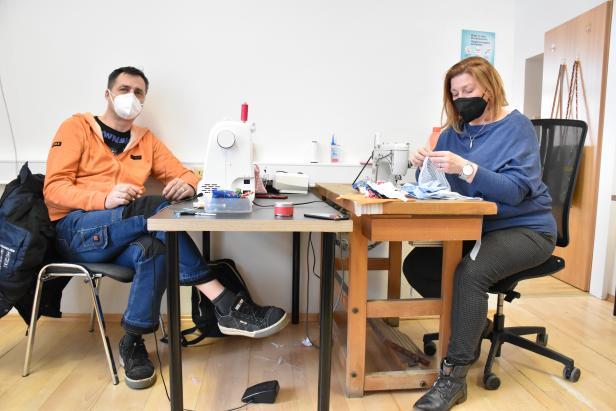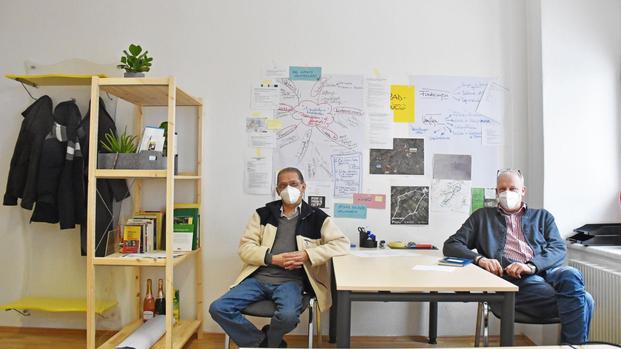The first 40 participants - the youngest 18 years old, the oldest 61 years - were interviewed about their qualifications, the skills, their interests and wounds.Personnel advisors of "ITWORKS" helped them find out what they would like to do themselves and what benefits the general public at the same time.The Sociology Institute of the University of Vienna accompanies the experiment with interviews and participating observation.Lukas Lehner and Maximilian Kasy, economists from the University of Oxford, research the social benefits and its costs, examine how the job guarantee is on health, well-being and life in Gramatneusiedl itself..

Participation in the project is voluntary, can be ended at any time without sanctions."Everything else would have the smell of forced labor," says Lehner.One expects 150 participants from Gramatneusiedl.Sven Hergovich, the state manager of the AMS-Niederösterreich and inventor of the project, awaits a fact-based recommendation what best serves the society in dealing with long-term unemployment.The boys could get the AMS under control with qualification measures, the long -term unemployment among the older ones should not be accepted.Hergowich's conviction: "Doing nothing makes you sick and costs more than funded work in the non -profit area."Joanna Diber, 43, and Radoslav Mirjanic, 52, sit opposite each other in a room in the former mansion of the textile factory..Beautiful fabrics in the retro pattern lie on the tables, buttons, sewing silk, applications;Herbal pillows, cosmetic bags.The needle rattles over the hem of a children's apron.Laptop bags hang on the wall.Talented amateurs work here who sew or improve a little every now and then at home.He could sew pants, bake the tarts, actually do everything, say everything, says Mirjanic.As a child, he had no great ideas about what should become of him.As a young man, he worked in his hometown Banja Luka, now belonging to the Republika SRSpka, as a waiter, receptionist, in a travel agency, an apprenticeship as a tourism specialist began.
The Yugoslav War destroyed everything.He emigrated, came to Austria, earned his money as a trained worker in various factories, most recently in the plexiglass production of para-chemistry.He has been unemployed for four years.He wanted to work everywhere, says Mirjanic.Learn everything, use all opportunities.The main thing is to work that is paid and is useful.The years of unemployment took him;Application letters that have never been answered or answered, unsuccessful calls, self -doubt, shame.He speaks quietly.If he comes home in the evening to his wife who works and his children, he has done something.Although he still speaks of himself as an unemployed person.They would have liked to sell at the Christkindlmarkt, but there was no.Now hope for Easter.Joanna Diber-Die colleague on the sewing machine, considering expanding the range of beautiful things to jewelry.She likes to worry about decoration, she doesn't see that as a work yet.As a young girl who grew up near Warsaw, she was interested in foreign worlds, foreign languages, travel agency, the hotel industry.She learned that too.Nevertheless, in Austria there was only work as a maid, a waiter, cleaner.She struggled through courses, trained as an operating logistics officer, the forklift driver's license.Now she sews children's aprons and thinks back with grays of the alleged non -committee at home, isolation, the loss of trust to itself and to others.Sometimes she didn't make a single application in many weeks.Your life seemed to be outdoors.Sitting all day is not your thing.Organizing, tackling something, walking from one to another would be better.Maybe it will still be.



